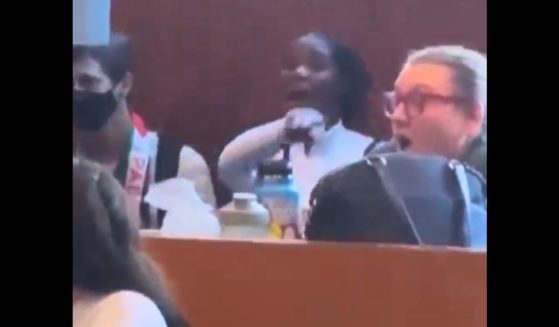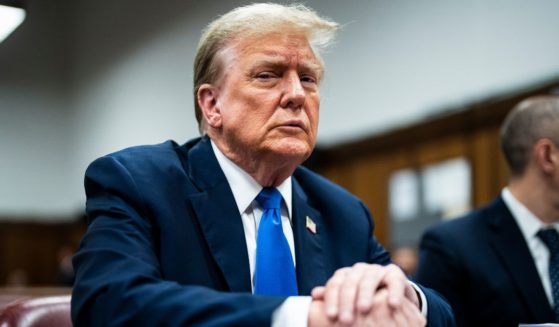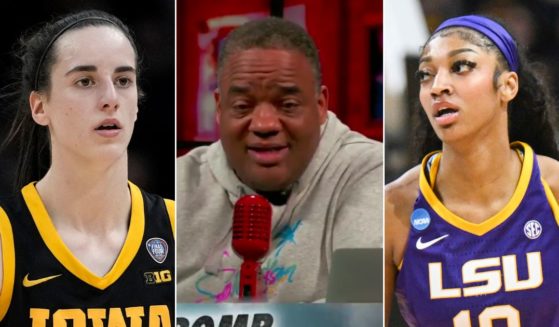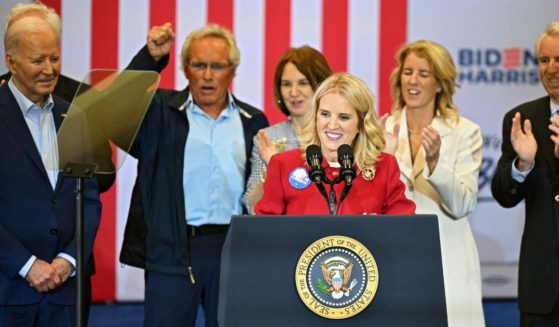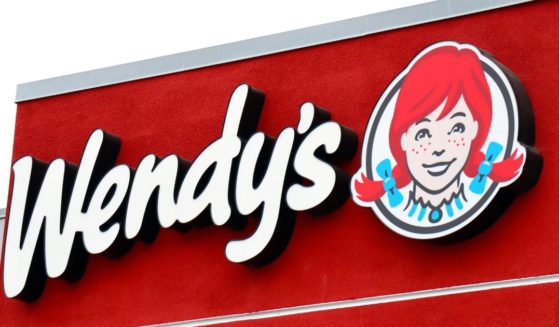Trump's Black Voter Approval Hits 42% with Overall Approval Rating at 50%
Could Joe Biden’s race problem come back to hurt him? At least one major poll seems to spell problems for the Democrats come November.
In Tuesday’s presidential tracking poll from Rasmussen, President Donald Trump’s approval rating among likely black voters was at 42 percent. Meanwhile, total approval was at 50 percent against 50 percent disapproval (though his total approval rating dropped slightly to 48 percent in Wednesday’s results).
When it comes to strong approval/disapproval ratings, the president was still slightly underwater Tuesday, with 40 percent strongly approving against 43 percent strongly disapproving of his performance.
The poll is taken nightly among 500 likely voters and is “reported on a three-day rolling average basis,” according to Rasmussen. The automated telephone poll has a margin of error of +/- 2.5 percentage points.
It was the black approval rating, however, that had eyes popping in the Tuesday edition of the poll:
For Tuesday, September 8, 2020
National Likely Voter (LV) Job Approval of @POTUS – 50%
GOP LV App – 79%
Dem LV App – 24%
Ind LV App – 48%
Men LV App – 53%
Women LV App – 47%
White LV App – 50%
Black Total LV App – 42% !
Other Non-White Total LV App – 56% ! https://t.co/FQdOFrvqIJ pic.twitter.com/8BN4sBRQnc
— Rasmussen Reports (@Rasmussen_Poll) September 8, 2020
Black approval of President Trump varies between polls. Rasmussen is one of the few likely voter polls to track black voter habits in terms of approval — which doesn’t necessarily translate into votes but remains instructive.
This can be glimpsed in other ways, as well. In one of the key swing states in the race, Pennsylvania, black voters in Rasmussen’s polls have been surprisingly good to the president.
In an Aug. 25-27 poll of 1,000 likely voters, Trump held 27 percent support among black respondents in the Keystone State, with a 3 percentage point margin of error.
Whether or not he retains that level of support might be key to his presidential campaign. The statistical analysis site FiveThirtyEight noted this week that the president has about 10 percent support among black voters in polls — a small number, unless you consider that keeping this level of support in a number of key battleground states could seal re-election for Trump.
“If the race is really tight, Trump’s maintaining this sliver of Black support could be critical,” FiveThirtyEight’s Perry Bacon Jr. wrote in a piece published Tuesday.
“In an analysis of the 2016 election, [Robert] Griffin, John Halpin and Ruy Teixeira argued that Clinton would have won Michigan and Pennsylvania if Black voters in those states had supported her at the levels they did Barack Obama. (About 95 percent of black voters in those states backed Obama, and about 90 percent supported Clinton.)
“I don’t want to belabor that point too much — the Clinton-Trump matchup in those two states was so close that basically any increase in support among any demographic group would have won it for Clinton. And it’s not surprising that black voters supported Obama, the first-ever Black president, at slightly higher levels than they did Clinton. But again, the bottom hasn’t fallen out for Trump among Black voters — he is basically as popular as previous GOP candidates.”
Trump’s share of the black vote in 2016 was estimated to be in the mid-to-high single digits, with Pew Research finding 6 percent of black voters supported Trump and the Roper Center at Cornell University finding 8 percent voted for him.
The speaker lineup at last month’s Republican National Convention reflected the Trump campaign’s focus on these voters, with a heavy focus on black speakers. The president, likewise, has highlighted low black unemployment before lockdown measures were implemented and his work on criminal justice reform.
Part of this focus is the vote calculus, but there’s a sense, too, that race is Joe Biden’s weak spot. Despite relatively strong support among black voters during the primary process, one easily gets the impression this wasn’t terribly deep support.
Arguably the most memorable moment of the debate process, for instance, was Biden crumbling in the first cattle-car contest when California Sen. Kamala Harris took aim at his stance on federalized racial busing and his nostalgia for a different era of “civility” in Washington when he could work with arch-segregationist Southern Democrats on the issue.
Things didn’t get much better from there, particularly given his odd tendency to make remarks that didn’t didn’t quite scan when read out. (The most famous/infamous of these was his decision to inform black voters that if they “have a problem figuring out whether you’re for me or Trump, then you ain’t black.”
.@JoeBiden: “If you have a problem figuring out whether you’re for me or Trump, then you ain’t black.” @cthagod: “It don’t have nothing to do with Trump, it has to do with the fact — I want something for my community.” @breakfastclubam pic.twitter.com/endvWnOIV2
— America Rising (@AmericaRising) May 22, 2020
Unfortunately for Biden, yes, they still are — and they don’t have to pick him because he’s a Democrat or because of Harris, whose spot on the vice presidential ticket hasn’t solidified black support behind his campaign as much as Democrats might have hoped.
Approval for Trump’s presidency doesn’t necessarily translate to votes, no, but it’s not a harbinger of a smooth election night for Democrats, especially when you factor in that a number of recent polls appear to show Trump surging. This is still a close race, one where even the slightest waft of voter dissension could spell disaster for the Democratic ticket.
Truth and Accuracy
We are committed to truth and accuracy in all of our journalism. Read our editorial standards.






